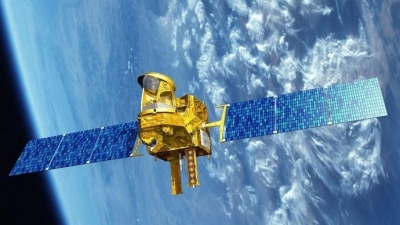New Delhi: Indian armed forces have earmarked funds to the tune of Rs 25,000 crore to meet its defence space requirements, ranging from building a constellation of surveillance satellites to secure communications networks, Chief of Defence Staff Gen Anil Chauhan said Wednesday.
Addressing the DefSat Conference and Expo organised by SIA-India, Gen Chauhan urged India’s private space sector to utilise this opportunity to make the country self-reliant in the emerging dual use-sector.
Listing out the requirement of the armed forces, he urged the industry to partner in augmenting intelligence, surveillance and reconnaissance (ISR) capabilities by developing multi-sensor satellites, launch-on-demand services and a robust network of ground stations.
Gen Chauhan also stressed on the need to develop indigenous positioning, navigation and timing (PNT) services by strengthening the NAVIC constellation.
“Indian armed forces cannot remain dependent on foreign constellations for its PNT requirements. PNT services for navigation, synchronisation as well as long-range engagement will require building a secure, reliable and resilient Navic constellation,” he said.
The inaugural ceremony was attended by Australian High Commissioner to India Phillip Green, National Institute of Advanced Studies Director Shailesh Nayak and senior officers from the armed forces.
“To execute our future requirements, if I make a rough estimate, our outlay in the coming few years would be more than Rs 25,000 crore. It is the right time for the private industry to utilise this opportunity. This period may be the Amritkaal for the private space industry. I think it is time to build a highly capable Atmanirbhar Defence Space ecosystem,” Gen Chauhan said.
He said high speed, secure, satellite-assisted communication was another area of growth.
“Investment towards satellite internet openings, satellites enabling the 5G ecosystem, high throughput satellite and LEO satellites need to be undertaken to provide a reliant and resilient coverage,” Gen Chauhan said.
He said launch capabilities being the basic building blocks, investments should also be on launch-on-demand capabilities in the near future.
PTI
